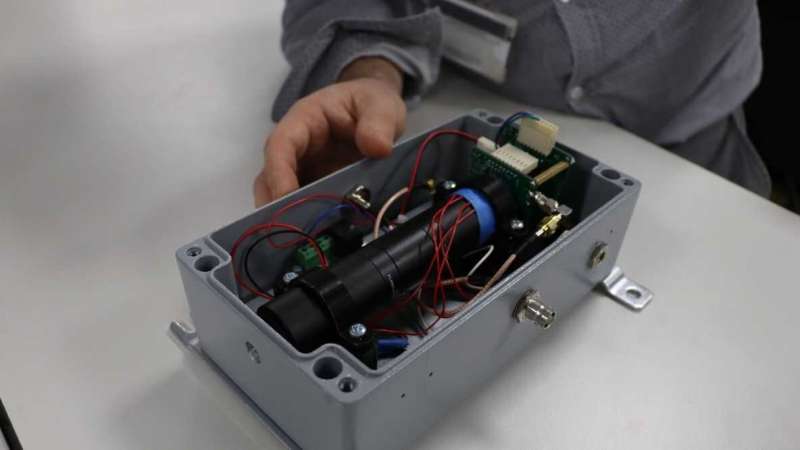
The characterization of blast events, and how they impact on structures, is critical for the development of infrastructure. It provides information to engineers that allows them to protect such infrastructure from events such as explosions.
However, there is a lack of high quality data regarding the characterization of blast events that take place within a confined space, in part due to the lack of suitable measurement instrumentation.
This is where the research of Dr. Matthew Hobbs, lecturer in the Department of Electronic and Electrical Engineering, comes in. This paper, led by Matthew, was published last year when he was working as a Research and Teaching Associate in the Department, alongside a team of other researchers, including Prof. Jon Willmott, Professor of Metrology.
The published paper was published in the journal Sensors, and is titled “High-Speed Infrared Radiation Thermometer for the Investigation of Early Stage Explosive Development and Fireball Expansion.” Other authors on this paper included members of the Blast and Impact Group from the Department of Civil and Structural Engineering at the University of Sheffield.
By incorporating a custom, high-speed, non-contact infrared radiation thermometer within a combined blast event measurement setup, the temperature of the explosive fireball can be accurately characterized. By combining their new approach with traditional pressure gauges, the team are able to discover new information regarding the early stages of fireballs as they expand and develop.
The explosive research was carried out in world-leading facilities out in the sleepy fields above Buxton. None of the nearby sheep were disturbed, however, as the explosions were carried out in a rig within a controlled chamber.
The infrared thermometer created by the researchers breaks new ground in the world of blast events in regards to the characterization of fireballs and explosions. Previously, because work is carried out within a confined space, and the explosions that are created are of a size that will destroy any recording camera in that space, the inner workings of these blasts have been hard to measure. The Blast group at Sheffield relied on traditional pressure gauges and numerical modeling of fireballs—this meant there were features in the first few microseconds that their sensors were too slow to pick up, and that the group only knew about these features from their models.
This new novel, non-contact temperature measurement instrument means that the microseconds immediately after an explosion can be analyzed in great depth, and lead to discoveries that can aid engineers in protecting infrastructure from threats, such as targeted attacks.
“By working closely together, we were able to develop instrumentation capable of measuring the temperature of a confined blast event. Such research would not have been possible without the mutual expertise of the two research groups; we were able to apply our novel research within temperature measurements in their novel application of blast load characterization,” says Dr. Matthew Hobbs, lecturer in the Department of Electronic and Electrical Engineering.
More information:
Matthew J. Hobbs et al, High-Speed Infrared Radiation Thermometer for the Investigation of Early Stage Explosive Development and Fireball Expansion, Sensors (2022). DOI: 10.3390/s22166143
Citation:
Technology for the investigation of early stage explosive development and fireball expansion (2023, March 31)
retrieved 31 March 2023
from https://techxplore.com/news/2023-03-technology-early-stage-explosive-fireball.html
This document is subject to copyright. Apart from any fair dealing for the purpose of private study or research, no
part may be reproduced without the written permission. The content is provided for information purposes only.
For all the latest Technology News Click Here
For the latest news and updates, follow us on Google News.

